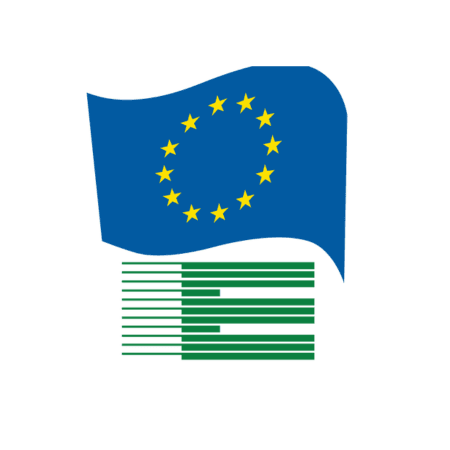The challenges to which the European Union is called with Russia’s aggression against Ukraine, the ever-widening conflict in the Middle East, the climate change, the lack of strategic autonomy and geopolitical risks, the questioning of multilateralism, the
disregard for the values of democracy and respect for the human person in other areas of the planet, but also in Europe must put the future of Europe at the centre of the political debate.
However, the achievement of the European integration project, in the sense of realising its federal purpose for the constitution of the ‘United States of Europe’, is not guaranteed because it has suffered setbacks in the environmental transition, migration policies and economic, social, and territorial cohesion policies.
The realisation of integration can be ensured only by essential acts:
– the launch of a Conference for Peace and Security in Europe (Helsinki-2), after the
end of the invasion of Ukraine, in the perspective of a broader and deeper
European integration;
– the rediscovery by the four main European political cultures of their universalist
and cosmopolitan, internationalist, and ecological transnational dimensions;
– the awareness on the part of the very young generations – the post-millenium
Generation – who are the bearers of a European identity, that their movements
against the degradation of the planet must be translated into a collective European
commitment that paves the way for a new form of constitution and governance at
the international level;
– the constituent role of EP towards which Altiero Spinelli was pushed with the draft
Treaty of 14 February 1984, involving national representative expressions together
with participatory and proximity democracy at all levels and in all European
countries both in the European Union and in the candidate countries.
A common ethos and cultural koinè developed around the community of law. The political koinè developed only around the European elections and the embryo of European political parties has not pervaded societies, at a time of retreating visions and the upper hand of national egoisms, growing inequalities and environmental crises, and closures to the phenomena they produce, such as migration. It has not overcome barriers, such as language barriers, which deserve the greatest educational and inclusive attention.
Dialogue with national parliaments and the extension of an ever-wider network of local authorities and European civil society organisations that take ownership ofcommon policies are of paramount importance. This is in order to overcome a certain conception of homo oeconomicus that has vitiated the integration process and policies, in a European Union that welcomes and does not exclude, that guarantees human dignity and freedoms, that overcomes the division into absolute sovereignties, that fights against all forms of discrimination, that puts justice and social inclusion, ecological transition and knowledge at the centre of its policies.
This idea of Europe cannot be an abstract concept but must be enriched by common goods and horizons that can no longer be guaranteed by States each for themselves. This is also where the role of local authorities comes in, whose task it is to translate the
European commitments for recovery and transition towards the environmental, social, and digital sustainability of European society into concrete policies and instruments.
Starting from the translation of the UN 2030 Agenda, from the Next Generation EU that will have to be renewed and strengthened after 2026 with European public debt and its articulation in national plans strongly inspired by local communities, in urban policies and territorial rebalancing in favour of disadvantaged territories.
We, the representatives of citizens in cities and local communities, call for a new start, which we believe must be democratic and constituent. It must have at its centre.
– a true European political democracy with a government of EU having limited but real tasks before the European Parliament to be granted full political, economic, legislative, budgetary and fiscal powers, the overcoming of the power of veto in the Council, the fundamental direction of foreign policy and the organisation of a common security and defence system, together with the transfer to the EU of competences that are beyond the capacity of the Member States to act
– the relevance of local autonomy not only on a functional-administrative level but also on an institutional level, constituting and legitimising the democratic architecture of European public powers as a fundamental link with all communities and all citizens, with a provision in the Treaties of a specific EU regulatory
competence on the matter that can outline a system of guarantees for municipalities and other local powers, towards a necessary updating of the “European Charter of Local Authorities”.
The debate on the future of Europe must be developed within a public space where the different dimensions of participatory, representative and grassroots democracy must be confronted in the perspective of the reopening of a new worksite for the
reform of the EU more than fourteen years after the entry into force of the Lisbon Treaty and its achievement before the enlargement of the EU to the candidate countries.
We believe that at the heart of the construction building site should be the European Parliament acting on behalf of the citizens who elected it in an ongoing dialogue with civil society from which a democratic compromise according to the federal model imagined in Ventotene in 1941 can emerge.
The compromise must be translated into a constitutional treaty to be submitted to a pan-European referendum that leaves open the possibility of its entry into force among those countries in which a majority will to realise the federal purpose of the European integration process according to the model of concentric circles, differentiated and more advanced, will have been manifested.
It is with this conviction that the League of Local Authorities and the European Movement have decided to promote the “Covenant of Mayors for the European Democratic Constituent Assembly for the United States of Europe” by submitting it for approval to the representatives of local authorities in our country and as a valid contribution for all the countries of the European Union.


